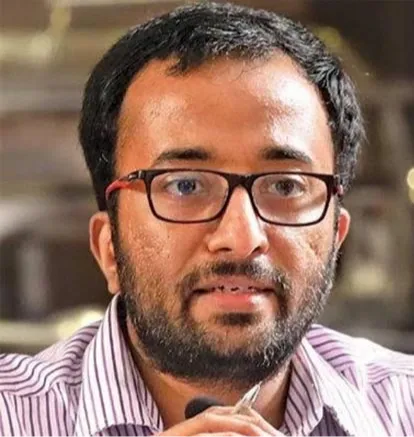
COVID-19 is spreading fast across the globe, currently affecting
177 countries, with around 234000 patients and 10000 deaths as on 21
st March. It took around three months to reach first 100,000 patients, but the next 100,000 came in under two weeks. In India, a total of 15,404 samples from 14,514 individuals have been tested for SARS-CoV2 as on 20th March 2020 6 PM IST. A total of 236 individuals have been confirmed positive among suspected patients and contacts of known patients. As on 21
st March, four deaths have been reported in India due to COVID-19.
COVID-19 Patients Across India
 Source: ORF COVID19 Tracker
Source: ORF COVID19 Tracker
With many countries like Italy and Iran reporting high number of patients and deaths, the experience of a handful of health systems including South Korea, Singapore, Taiwan, Hong Kong and indeed China who focused on
non-pharmaceutical initiatives — including social distancing and travel restrictions — with the primary aim pf breaking chains of transmission and preventing an exponential growth cycle, is being looked at closely by the world.
 Source: https://covidout.in/
Source: https://covidout.in/
With China trying to blame others for COVID-19 outbreak, there is a strong global pushback taking the authoritarian regime to task for trying to become an
irresponsible global hegemon. Debates and speculations over how the coronavirus outbreak might play out in Africa continue, as
Africa reports more and more cases. With societies
stuttering to a halt and the barricades quickly going up, researchers have focused on impacts on the gig economy, and the added vulnerabilities its workers are faced with. There are concerns about how COVID-19 will play out in
conflict zones, where health systems are already dysfunctional and supply chains non-existent. Economists have called for a worldwide
2020 version of the Marshall Plan which may rescue the global economy from the pits it will be in after the virus relents.
The UK government has published online the dynamic
scientific evidence on which it has based its COVID-19 strategies on, reflecting an incredibly fast-moving, developing situation. There are new antibody based
tests being rolled out, that can detect active infections along with infections in the past, which can help us estimate the true scale of the pandemic. In the meantime, India has officially
expanded the testing criteria to include all hospitalized patients
with Severe Acute Respiratory Illness (fever AND cough and/or shortness of breath) as well as asymptomatic direct and high-risk contacts of a confirmed case. This will likely result in a further increase in cases detected. In Mumbai,
price caps have come into play for COVID-19 treatment.
Unlike what was earlier thought, new evidence is emerging that
people under 50 make up a significant proportion of patients requiring hospitalization. The novel coronavirus is gaining foothold in countries with weaker health systems and vulnerable populations, where the spread was not visible initially due largely to testing capacity. Also, shortages of Personal Protective Equipment (PPE) is causing medical professionals contracting the infection, further disrupting the health systems across the world.
The suggestion from France that anti-inflammatory drugs like ibuprofen or cortisone could aggravate COVID-19 infection has been criticized by professionals and it is recommended that people taking such medicines for other reasons
should not stop doing so for fear of increasing their COVID-19 risk. As COVID-19 takes hold in
regions like South Asia which have not been in focus earlier, this global battle is presenting the world unprecedented challenges to overcome, together.
Despite being the origin of the virus, the cases from China are declining fast and the rest of the world is reporting almost all cases and fatalities, with many countries facing unparalleled human tragedy. However, as noted before, not many other countries can try to do
what China managed to do by using old fashioned classic public health interventions and with scant regard for human rights. Testing actively, finding the pockets of infection followed by strong actions to suppress the virus will have to be the focus, as once the virus takes root, even the best of healthcare delivery systems will be overwhelmed.
The views expressed above belong to the author(s). ORF research and analyses now available on Telegram! Click here to access our curated content — blogs, longforms and interviews.
 COVID-19 is spreading fast across the globe, currently affecting 177 countries, with around 234000 patients and 10000 deaths as on 21st March. It took around three months to reach first 100,000 patients, but the next 100,000 came in under two weeks. In India, a total of 15,404 samples from 14,514 individuals have been tested for SARS-CoV2 as on 20th March 2020 6 PM IST. A total of 236 individuals have been confirmed positive among suspected patients and contacts of known patients. As on 21st March, four deaths have been reported in India due to COVID-19.
COVID-19 Patients Across India
COVID-19 is spreading fast across the globe, currently affecting 177 countries, with around 234000 patients and 10000 deaths as on 21st March. It took around three months to reach first 100,000 patients, but the next 100,000 came in under two weeks. In India, a total of 15,404 samples from 14,514 individuals have been tested for SARS-CoV2 as on 20th March 2020 6 PM IST. A total of 236 individuals have been confirmed positive among suspected patients and contacts of known patients. As on 21st March, four deaths have been reported in India due to COVID-19.
COVID-19 Patients Across India
 Source: ORF COVID19 Tracker
Source: ORF COVID19 Tracker Source: https://covidout.in/
Source: https://covidout.in/